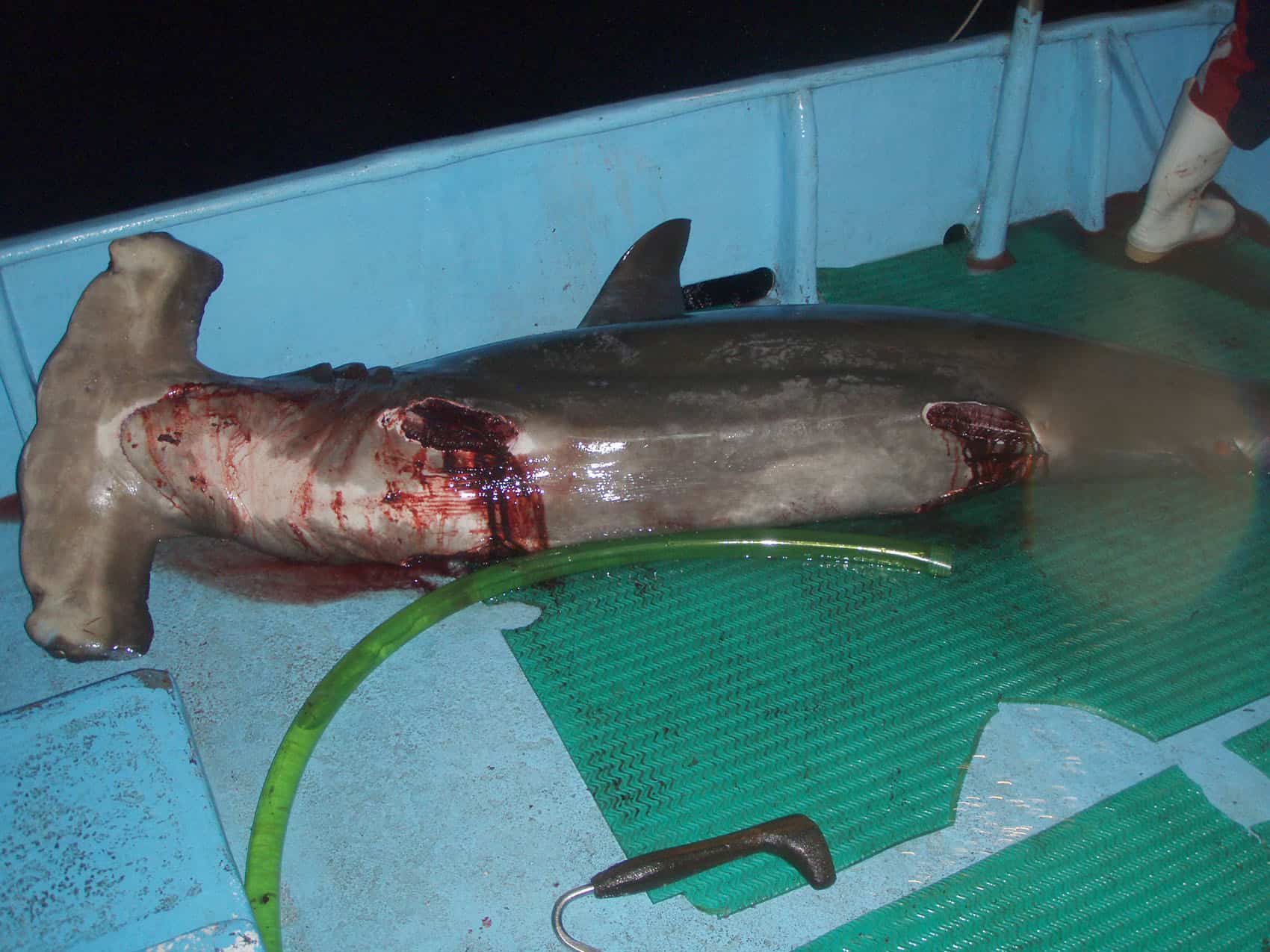Costa Rican environmentalists and officials are at loggerheads over what to do with more than 1,200 kilograms of shark fins — the equivalent of about 2,000 hammerhead sharks — allegedly caught as bycatch and set to be exported to Asia. The disagreement extends to regulations published in February that environmentalists contend further threaten dwindling and endangered shark populations by a country that has worked hard in international forums to protect them.
On Monday, a collection of environmental groups, including the ocean conservation group Pretoma, the Costa Rican Federation for Environmental Conservation (FECON) and Bloque Verde, asked for public support of a petition to block the export of the shark fins.
Marine wildlife advocates argue that the Environment Ministry’s National System of Conservation Areas (SINAC) violated the Convention on International Trade in Endangered Species of Wild Fauna and Flora (CITES) agreement when it granted export company Smalley Development S.A. permission on Feb. 16 to export to Hong Kong more than a metric ton of hammerhead shark fins caught in Costa Rican waters. Pretoma and conservation organization MarViva both sent letters of protest to President Luis Guillermo Solís over the authorizations.
Shark populations worldwide have been hit hard largely due to demand in Asia for shark fin soup, considered by many as a delicacy, although a movement to stop shark fin soup consumption is growing.
SINAC issued a statement Monday defending its decision, noting that the fins were collected from whole sharks – Costa Rica forbids the landing of shark fins unless they are attached to an entire shark’s body – before the CITES agreement went into effect in Costa Rica on Sept. 14, 2014. The government’s statement acknowledged that this was the second time a permit had been granted for the export of shark fins since Dec. 22, 2014, when permission was granted to export 411 kilograms of shark fins.
SINAC said that it would not grant any more of these permits until President Solís issues a decree on how to handle these situations in the future. SINAC Executive President Julio Jurado – at the center of the controversy for having signed the export permits – told The Tico Times he is confident those permits abide by the law, noting that the sharks were landed whole and had not been finned, a practice by which a shark’s fins are lopped off the still-living animal, which is then dumped back into the water to die.
Full disclosure: In addition to being SINAC’s executive president, Julio Jurado also is a board member of The Tico Times. “This is not about massacring sharks or finning. These sharks were caught, unfortunately, incidentally with other fish, a small proportion of which were hammerhead sharks,” Jurado said.
Jurado said the selective export of previously collected fins did not violate the spirit of the CITES treaty, referencing the different appendices that prioritize protection for threatened species. Hammerhead sharks are listed under Appendix II of CITES, which allows international commercial trade of these species if governments certify that the catch was sustainable.
The SINAC president said he is not currently aware of any other pending requests for permission to export previously caught shark fins. Conservationists, however, are dubious of that explanation. Pretoma President Randall Arauz told The Tico Times that the permission to export the fins — regardless of when they were caught — undermines the spirit of the CITES agreement, and he said sufficient studies do not exist to support Jurado’s claim.
“If Costa Rica wants to protect hammerhead sharks, why don’t we abide by CITES, like we committed to?” Arauz said. “What’s our real position?” While CITES governs the export of endangered animals, Arauz said that recently published Costa Rican regulations governing the size of sharks caught in national waters is another threat to diminishing shark populations.
Environmental groups decried new regulations governing the size of sharks and rays fished in Costa Rican waters, including one that would allow the removal of hammerhead sharks 30 percent smaller than the minimum size to reproduce. The regulations, released in February, range from 10 to 30 percent of the minimum size set by the Agriculture and Livestock Ministry to estimate the minimum size for sharks to reach sexual maturity.
The regulations cover eight kinds of sharks: hammerheads (Sphyrna lewini), houndsharks, (Mustelus henlei), big-eyed threshers (Alopias superciliosus), pelagic threshers (Alopias pelagicus), blue sharks (Prionace glauca), blacktip sharks (Carcharhinus limbatus), tiger sharks (Galeocerdo cuvier) and silky sharks (Carcharhinus falciformis).
“Whether we like it or not, there is always a risk of incidental capture, and therefore, we have these margins for tolerance,” INCOPESCA President Gustavo Meneses told the daily La Nación on Monday. “The question here is what is the acceptable level of tolerance.”
Arauz said the exceptions to the rule defeat the controls designed to maintain shark populations as extraction continues.
Said Arauz: “They are promoting the extinction of these sharks.”









